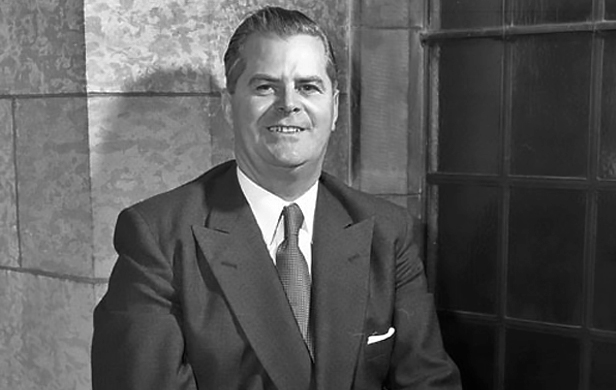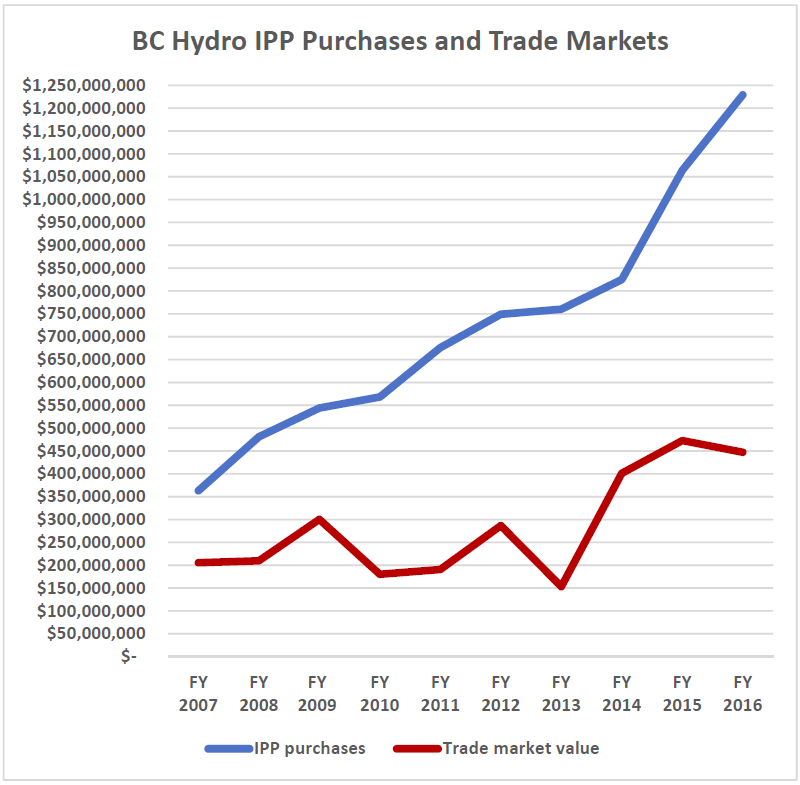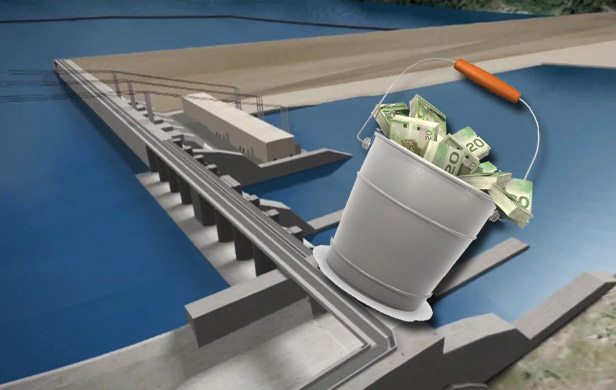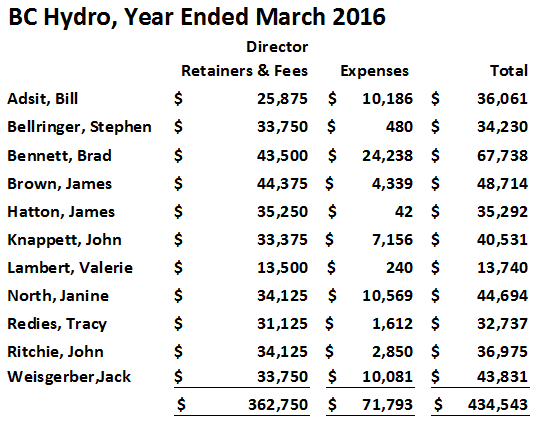Repeated here is something I wrote about BC Hydro in early 2017 for The Common Sense Canadian, an online journal covering Canada’s economy and environment. The site was co-founded by Damien Gillis and the late Rafe Mair and ran for a decade. It remains a worthwhile archive of several thousand stories. A few statements are revised to reflect current information.
Until the mid-twentieth century, much of British Columbia lacked reliable and affordable electricity. To resolve the privation, W.A.C. Bennett created BC Hydro, a publicly owned utility. The province’s leader acted because the private sector had refused to meet growing needs for electricity. Unlike less effective successors, Premier Bennett was a pragmatist, not an ideologue.

Existing power producers focused on profitable services in the southwest but Bennett had a province-wide vision. His was an audacious plan, but appropriate and successful. BC Hydro became indispensable to the growth and wealth of British Columbia. However, success sowed seeds of destruction.
BC Hydro’s profitability and financial strength guaranteed corporate raiders would attack, seeking to convert public wealth to private. To be successful, they needed cooperation of modern political rulers and, whether explained by incompetence, philosophical bent or desire for covert rewards, the Liberals cooperated fully.

Looting Bennett’s Legacy
Ironically, among today’s political facilitators of the utility’s destruction was W.A.C. Bennett’s grandson, BC Hydro Chair Brad Bennett, a Liberal apparatchik and close Christy Clark pal. Another was Hydro CEO Jessica McDonald. She was Deputy Minister and confidant to Gordon Campbell in 2006 when the premier’s office invited predators to get rich on electricity. (Blogger Alison Creekside named lucky BC Liberal operatives and allies in her article Gordon Campbell’s Big Jobs.)
Years ago, Citizens for Public Power member and SFU professor John Calvert wrote:
B.C. Hydro announced the outcome of its 2006 tender call for electricity from private energy developers. The results were startling. Not only had B.C. Hydro agreed to buy three times the power requested in the tender, it had done so at locked-in prices far above projected market rates.
…The core of that policy was laid out in the 2002 Energy Plan, which prevents B.C. Hydro from building new generation assets, and transforms the Crown corporation from a generator of publicly-owned electricity to a purchaser of energy from the private sector.
The rationale for this change is hard to fathom. The old policy worked very well. By generating its own power, B.C. Hydro ensured that ratepayers enjoyed, on average, the second lowest electricity prices in North America. This is because prices were based on the historic cost of production, not the current energy market price…
Dr. Calvert’s warnings were insufficient and subsequent Liberal actions even more egregious. The professor noted early independent power producer (IPP) contracts locked BC Hydro (and BC taxpayers) into financial commitments of up to 40 years. Recently, contracts have extended to 60 years and all are indexed to protect suppliers against inflation. Some required large public expenditures for distribution. Calvert said IPP prices were double the market value but they’ve since risen to even more.
IPP costs exploded
We also know that, instead of costing between $400 million and $500 million every year, IPP payments have climbed beyond $1.4 billion yearly, a number that has more than doubled since 2011 when Christy Clark was appointed Premier.


Chronically overestimating demand
BC Hydro’s encompassing blunder was failure to recognize technology and market changes revolutionizing the energy industry. Hoping to grow their fiefdoms and deliver value to demanding friends, Hydro executives chose to ignore reality. They steadily issued demand forecasts predicting immense growth. (“If a boy holds a hammer, everything needs pounding.”) Meanwhile, consumers were conserving.
Here’s how badly they’ve gotten it wrong:
- In 1994, they predicted 52% demand growth by 2004. Actual growth: 18%
- In 2005, they predicted 20% demand growth by 2016. Actual growth: 0%
- In 2011, they predicted 20% demand growth by 2016. Actual growth: 1%
- In 2012, they revised to 9% demand growth by 2016. Actual growth: -1%
Indeed, the utility’s records reveal that electricity consumption by regular customers has been flat for more than a decade.

IPPs get rich on ratepayers’ backs
Independent power producers more than doubled deliveries to BC Hydro and the utility was forced to dump surplus power outside the province, with trades sales at an average, between 2005 and 2016, of just 28% of prices paid private producers. And that loss is made worse because of Hydro’s collection and distribution costs.

So, for every dollar BC Hydro paid IPPs, provincial consumers of electricity lost substantially.
Consumer demand was flat or growing slowly. Private power supplies were rising and export markets were soft. BC Hydro could only dump power outside the province for little revenue or reduce its internal production. Again, the utility’s own reports lead to a conclusion.
The following numbers were drawn from BC Hydro’s annual and quarterly reports and from U.S. Department of Energy market recaps. They demonstrate that in nine months, BC Hydro paid more than $600 million above market to independent power producers – having purchased the power from IPPs at $85,261/GWh, while the market for selling electricity to the US market was just $28,930 CAD per unit.


Liberals pulling Hydro’s puppet strings
The Liberal Premier and cabinet failed catastrophically when they directed BC Hydro to contract for private power the utility did not need at prices it could not afford. The extent of this gross mismanagement, unprecedented and ruinous for the crown corporation, remains concealed by government-friendly media that is enjoying millions of public funds spent on advertising and public relations.
The Liberal decision to exercise absolute control over BC Hydro’s management was made clear in 2008. CEO Bob Elton, a qualified professional, was fired by Gordon Campbell after stating publicly, “Conservation is the cleanest, easiest and least expensive way to meet the increasing demand for electricity in B.C. – it’s like building a virtual dam.”
Reducing consumption of electricity simply did not fit with the Liberal gang’s desire to buy private power from their pals for tens of billions of dollars.
The goose that lays the golden egg
More recent opponents of Liberal power policy assume that, beyond grabbing the profits to be made flipping IPP contracts, political operatives aimed to cripple BC Hydro to make its privatization palatable. The writer believes that, while this was the initial plan, the guiding parties decided they could gain more another way.
There was no need to privatize Hydro’s assets and liabilities. Instead, they privatized its profits and left Hydro and the public with all the financial risks.
One example is Site C, which will create more unneeded and unaffordable power. No private investors in the world would fund a hydroelectric dam with environmental issues, First Nations conflicts and near zero prospects of profitable operations. But, if the public pays for the dam and sells power to the private sector at a fraction of cost, there are private profits to be made.

Budgeted at $8.8 billion, if spending on Site C matches other Liberal megaprojects, it will cost substantially more. [Indeed, the final cost will be around $20 billion] That money goes straight into the pockets of construction companies that donated generously to the Liberal Party. Far from caring about keeping the project on budget, they have a huge incentive to achieve the opposite.
In addition, there are indicators the dam’s output will be less than forecast. In 2011 through 2016, BC Hydro’s three largest facilities annually produced 3.6 times stated capacities. Proponents claim that Site C, with 1,100 MWh capacity will produce 5,100 GWh. That is a ratio of 4.6, considerably above Hydro’s typical experience. Reduced production will mean higher costs for each unit of power the dam generates.
That should set off alarms for residents and small businesses operators. BC Liberal policy enables heavy industries to pay well below the average cost of new power so residents, commercial enterprises and light industry are the utility’s only profit producing customers. High production costs for private power and Site C output and weak export markets make significantly higher domestic prices inevitable.
Liberal donors controlled Hydro board

Clearly, BC Hydro has been in disarray for some time. In fact, it is operating as an affiliate of the BC Liberal Party. Of the eleven people collecting fees as directors of the province’s utility in the last fiscal year, all have records as party contributors or close associates of Liberal politicians. Some have business dealings impacted by business activities of BC Hydro.
Political meddling, moronic contracts, deceptive accounting and the self-serving management of mediocre hacks devastated what was once a competent and professional crown corporation. Not by accident or mere negligence, this was deliberate.
Recovery will not be simple or quick but, if it is to happen at all, a new beginning starts with the provincial election on May 9.
Note: Unfortunately, instead of a new beginning for BC Hydro, the NDP under Horgan and Eby have given us the same.
Categories: BC Hydro




looks like oct 19 2024 for next BC election
LikeLike
https://revelstokemountaineer.com/brief-revelstoke-dam-unit-6-postponed-indefinitely/
is geothermal banned?
LikeLike
Thank you for the walk through “history”. Some of the lines I do remember from the time they were written,. I can certainly recall Rafe Mair’s blogs about the IPPs and how it would impact fish. Actually recall a number of articles both of you wrote at the time. One was Campbell had B.C. Hydro purchasing electricity from the IPPs at 10 cents a Kwh and selling it for 3 cents a Kwh. And they were trying to convince the voters of B.C. they were the people who knew how to do business. They certainly did know how to do business, it just wasn’t the way it was going to benefit theh people of B.C. but I do recall it benefited them and their friends.
The list of power requirements and what was actually being used, I recall when that was in one of your posts. and here we are to day. During summers when the news reports rivers are low and salmon are not doing well, I do wonder how much the run of the river projects are part of the problem.
Now we have site C, still being built and the amount of money being spent on it, boggles the mind. The province could house a lot of people with $20billion or estblish new medical and nursing schools to start getting a steady supply of them. Right now I’m sure there is more than one tax payer who’d appreciate a doctor/nurse instead of that dam dam on Site C.
Thank you again for this and the work you do.
LikeLike
BC Hydro gets an F for forecasting.? BCUC should be in control of that.?
Never trust in house numbers -hydro,transit etc? You even have to question external input?
Does BCHydro have to pay ipp,for private power, even if they cant deliver.? force majeure?
Does BChydro have to bypass its water,dump, to provide ipp power priority at times.?
LikeLike
Good questions, but contracts with private power producers are secret so we cannot answer them.
All we know is that in the last three fiscal years reported, BC Hydro paid companies (mostly controlled outside the province) $4.35 billion for 47,000 GWh.
The price paid for private power averaged 9.3¢ per KWh during fiscal years 2021 through 2023, plus collection and distribution costs. That is substantially above the rates BC Hydro charges industrial customers
LikeLike
For those who are interested in exploring the number and variety of Independent Power Producers who currently market their electricity to Hydro this file from BC Hydro provides that information - https://www.bchydro.com/content/dam/BCHydro/customer-portal/documents/corporate/independent-power-producers-calls-for-power/independent-power-producers/ipp-supply-list-in-operation.pdf
LikeLike
Who are those independent power producers, and how do they produce power? (Not arguing here; I just don’t know. I do remember “run of river” projects being mentioned some years ago.)
LikeLike
There is a long list of private power producers published by BC Hydro:
https://www.bchydro.com/content/dam/BCHydro/customer-portal/documents/corporate/independent-power-producers-calls-for-power/independent-power-producers/ipp-supply-list-in-operation.pdf
The ten largest producers listed supply 50% of the total. Eight of ten are controlled outside British Columbia.
Of the 20 or so companies selling two-thirds of the energy listed on this BC Hydro document, only three are controlled in BC.
LikeLiked by 1 person
Thanks, Norm!
LikeLike
Hello Norm, if BCH is so poorly managed how is it the BC has the third lowest electricity rates in North America in some cases half of what many major cities are paying? Waiting patiently for your reply. Also, interesting to know your experience in the industry. Mine is over fifty years in the US and Canada!
LikeLike
BC Hydro was well-managed for many years. That changed after 2001 when BC Liberals formed government. They aimed to privatize the company but decided that would be politically unpopular. So, they made secret deals that forced BC Hydro to buy electricity from private companies at inflation-protected prices well above market value.
Why does BC continue to have electricity prices that are among the lowest in North America? That’s an easy question to answer and if you’ve been involved in the business side of the industry for fifty years, you probably know the answer.
Under the Two Rivers policy of former Premier W.A.C. Bennett, BC Hydro overbuilt supply in the 1960s. Bennett believed the province was blessed with hydro resources unique to most of North America. He intended for BC to have low power rates for decades to follow, and those low rates would allow industrial and commercial development in the province.
But Gordon Campbell Liberals saw an opportunity for friends to gain huge profits. The result was secret power purchase agreements that have resulted in payments to IPPs of more than $19 billion since BC Liberals took power. A substantial portion of that sum was above market rates
LikeLike
Norm,
The ‘bottom line’ when assessing any business is simple. It’s the ‘bottom line’!
With a Utility, the ‘bottom line’ is the costs per KWH to the end user. As long as BCH is delivering a service way below the North American average rate, your critique rings hollow. All the points you raised, are irrelevant.
<
div>
LikeLike
This comment ignores the reason for making contracts secret. Early in the private power scam we were confronted with a proposal to establish a natural gas generation plant at Duke Point. Because it was the first we got a copy of the contract between BC H and the private operator. Both BC H and the BCUC gave the project a green light.
The present value of this contract , determined by the calendar at a minimum , was $500 million and the evidence by the contractor was $300 million to build to completion. Because of the financial lift day one of $200 million plus other addons, we took this into a court of real law.
The second we got a court date the Government, BCUC , BC Hydro and the contractor all vanished ending the building of a generation plant on Duke Point.
Now we get to the nub of the Government’s plan. All subsequent power contracts were made secret and I have a confirming letter from the BCUC.
In 2013 BC Hydro’s director of forecasting presented their latest to a meeting of BC Economists. After I asked him why he was showing a population growth rate of greater than +2% when StatsCan was showing just over +1%. His answer was he was under instructions to get and use both GDP and population future values from an unnamed private source.
The Province’s population has been scammed, only they have yet to figure that out.
Erik
LikeLiked by 1 person
why BCUC not demanding reveal of private source?
sounds like –
state capture
breach of public trust
and fiduciary duty
BCHydro runs about 80:20 debt to equity so if you think hydro rates are low factor in debt (27B?) and pension obligations and private power purchases?
LikeLike
Mike,
Good to have an expert step up and offer his expertise to those of us who are not as well equipped but have questions and concerns about some aspects of BC Hydro’s operations. I’d appreciate your expert opinion on a couple of things I’ve been wondering about.
Successive Auditors General have expressed concern about the magnitude of deferral accounts utilized by BC Hydro. Do you foresee any increase in future rates necessary to retire these accounts? If not, how would that be accomplished? If so, how much would rates increase?
One of the deferral accounts relates to the Site C expenditures, and will not begin to be paid off until Site C is in operation. What will the balance be in this account by the time Site C begins to deliver, and how much will future rates increase to handle this?
Given that government has continually interfered with the British Columbia Utilities Commission mandate, can you assure us that the rates we are paying are not (politically) artificially low, and that we or our offspring will not have to pay a future piper?
What effect will the planned subsidization of electricity supply to LNG operations in BC have on residential rates?
Have our residential electricity rates been affected in any way by the price and amount of electricity acquired by BC Hydro from IPPs compared to what it could generate itself or acquire through other sources? If so, has the effect been positive or negative for ratepayers?
LikeLike
Lew has asked some interesting questions needing answers unless he was only introducing the readers to what unpleasantness is yet to be disclosed. Erik ________________________________
LikeLike
Sadly, history will show that one Gordon Campbell, did more to destroy British Columbia than any other premier in history. it is maybe why his key henchman, Kevin Falcon, is doing so poorly in the polling as he and Gordo are toxic to many BC voters.
LikeLike
Thanks for the trip down memory-lane Norm, even as painful as that may be. It is important to learn from past mistakes, but I fear that may not happen.
There is a lot of political and special interest jockeying going on right now in what is shaping up to be the next big wave of required new electrical generation. We should be skeptical of some of the bullish forecasts of future demand that electrification will require, but I do imagine that demand will go up with the transition away from fossil fuels that is needed. However, I truly hope that more expansion of local small scale distributed generation is where the lion share of generation comes from and not from money losing destructive mega-projects like Site C. That will make our grid much more resilient and sustainable and make better use of our existing local distribution lines.
Regards, Ken Boon
LikeLike
Well written Norm. In Peter Turchin’s new book, “End Time” he uses the term “wealth pump” to describe what the greedy want above all and why they work at finding ways to capture monopolies like BC Hydro.
It is unfortunate the manipulations used to achieve the goal go unnoticed by the citizens who are trying to thrive and survive while believing their elected representatives are doing the job of looking after everyone’s best interest.
I am sure you remember when Campbell made all those contracts secret. That was done without a murmur from the mainstream media.
LikeLike
Thanks, Erik. I just bought Peter Turchin’s book and it’s on my reading list. The preface includes this remark:
Turchin, Peter. End Times: Elites, Counter-Elites, and the Path of Political Disintegration (p. ix). Penguin Publishing Group.
LikeLike